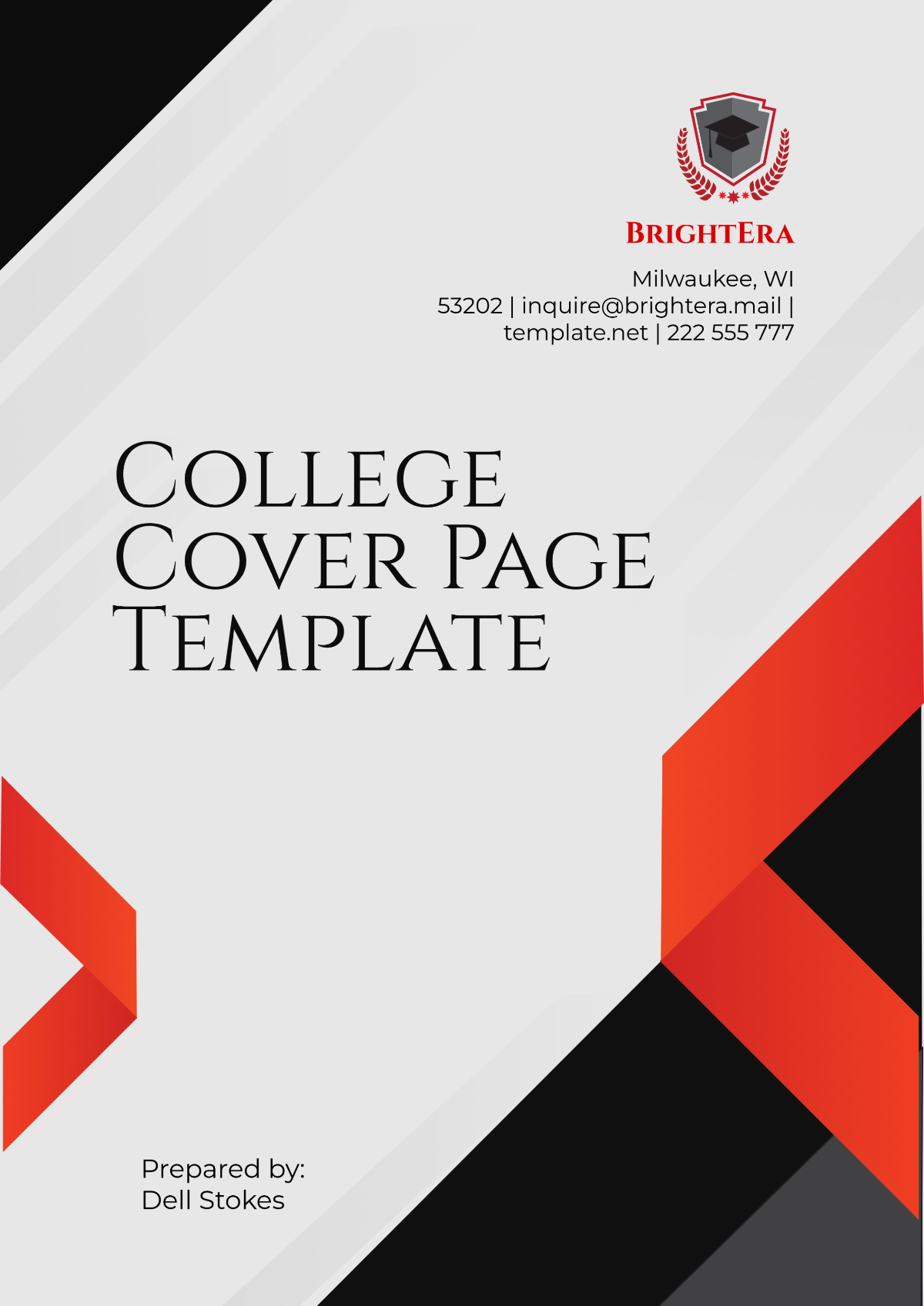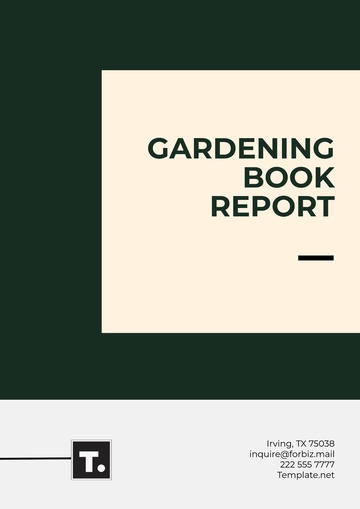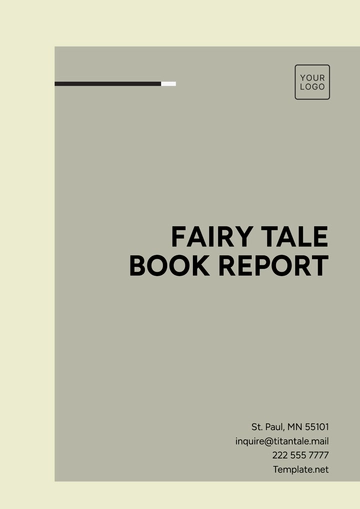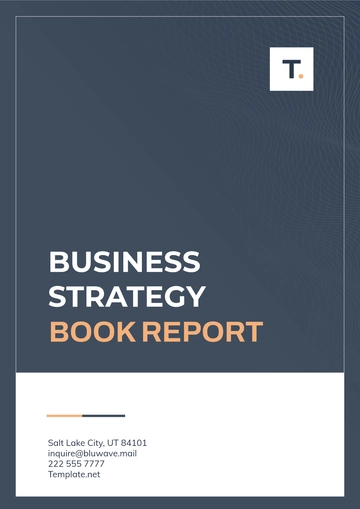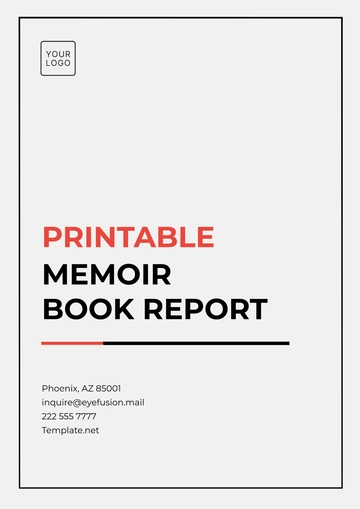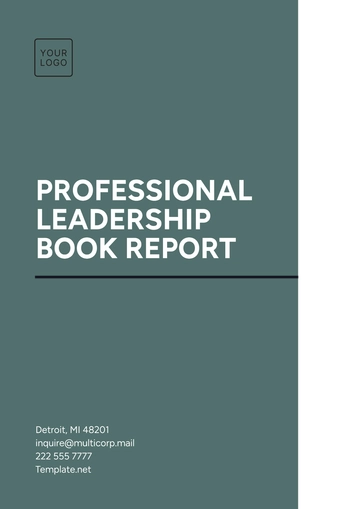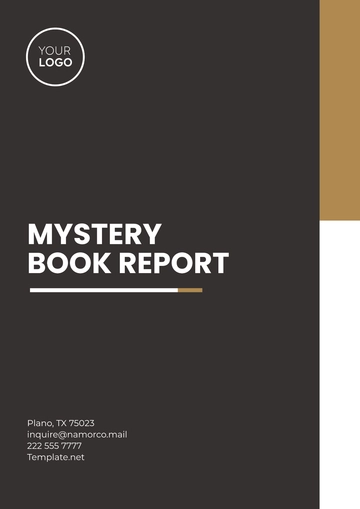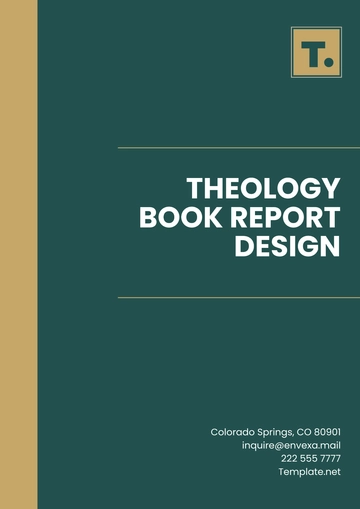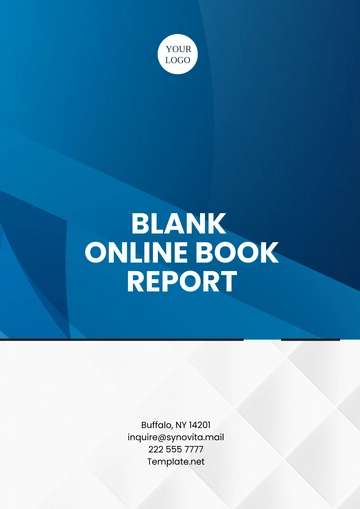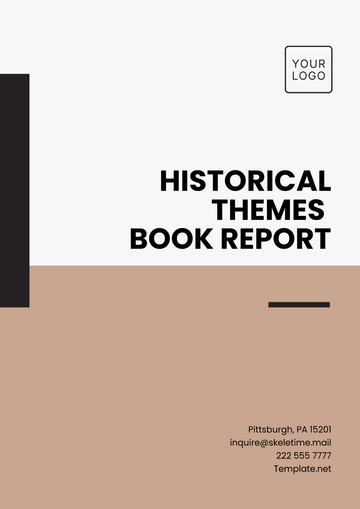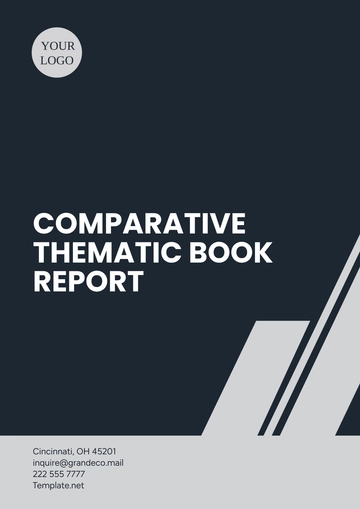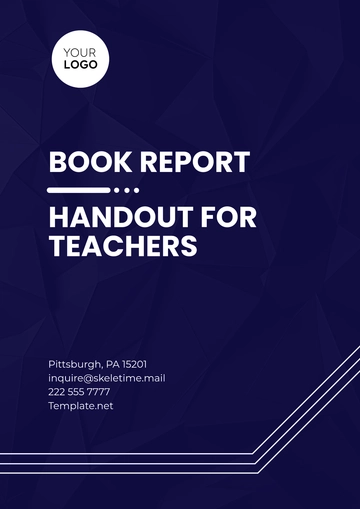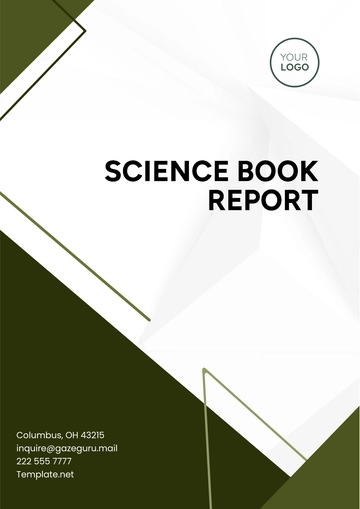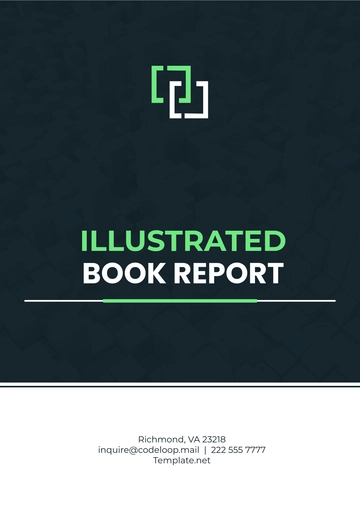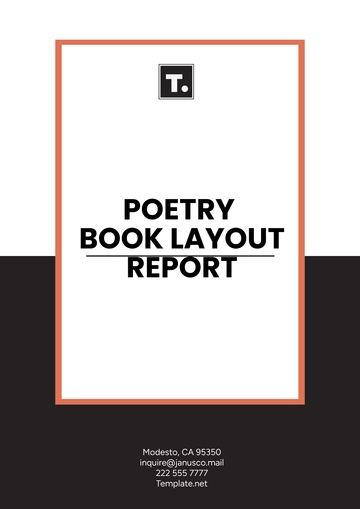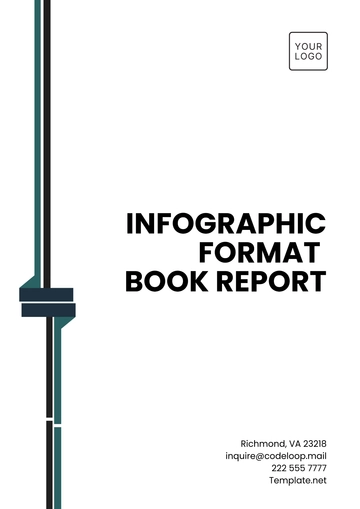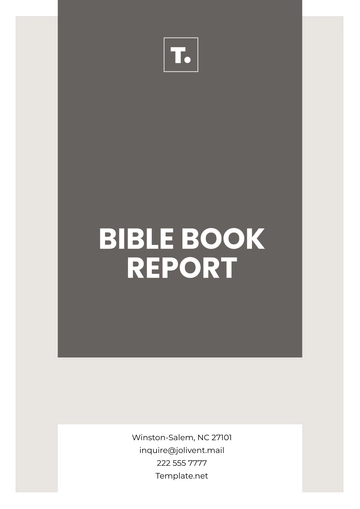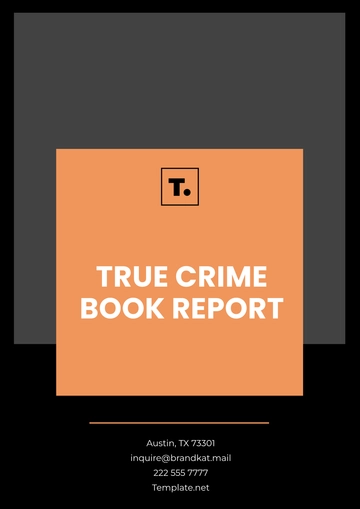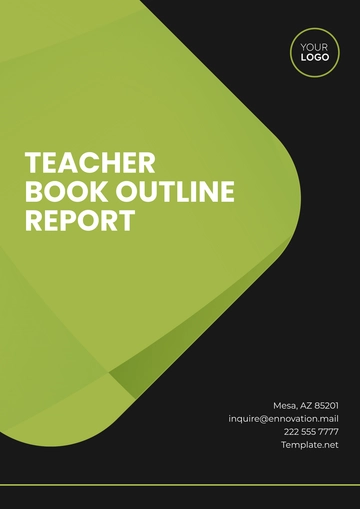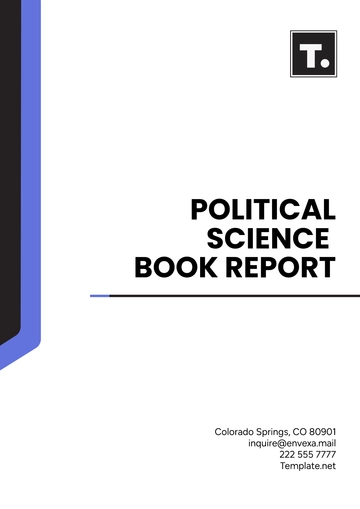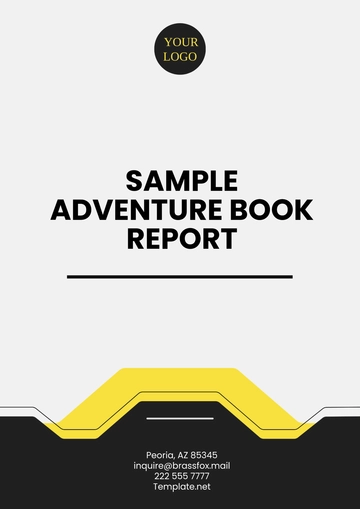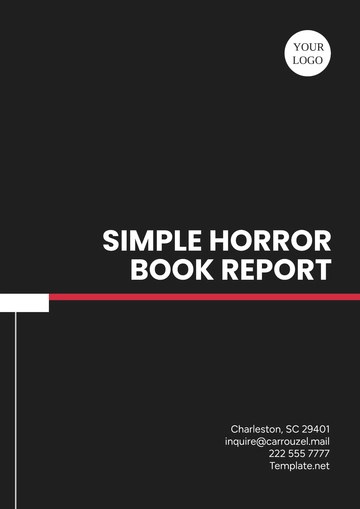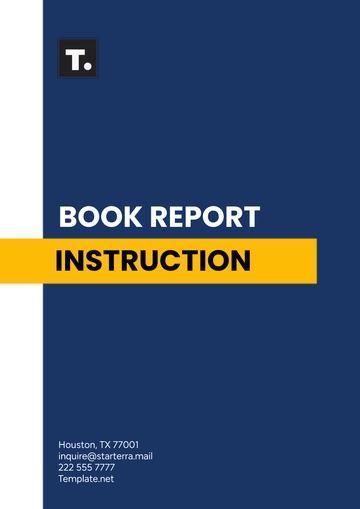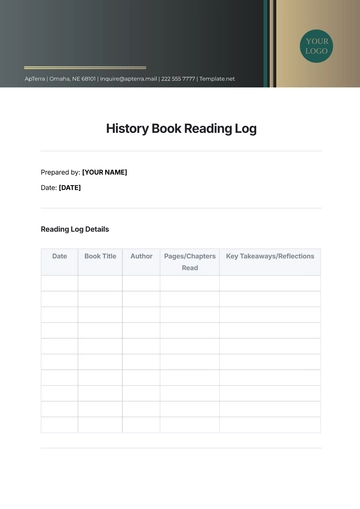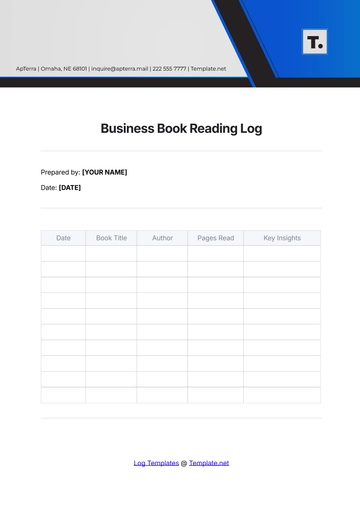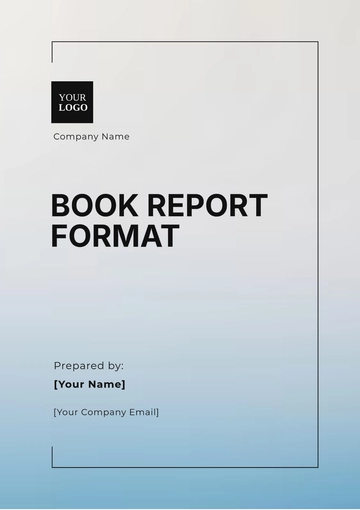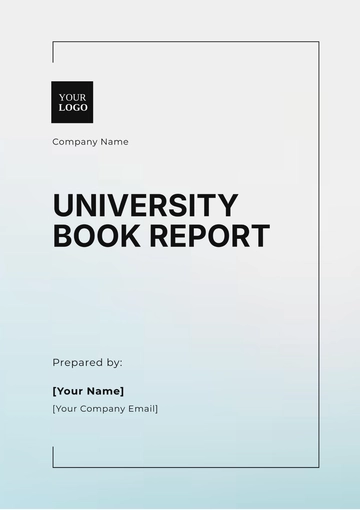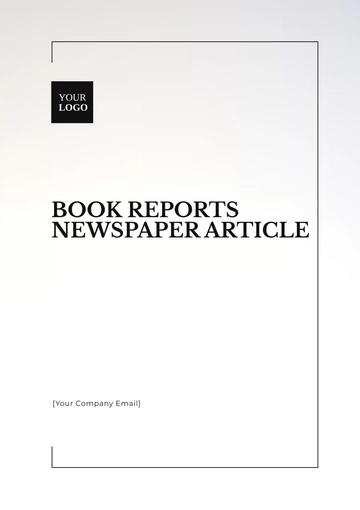College Book Report
Course: English Literature 101
Date: March 15, 2050
Instructor: Prof. Jane Matthews
I. Introduction
A. Background Information
B. Purpose of the Report
This report aims to analyze the themes, characters, and plot of Beowulf, providing a comprehensive overview and critical analysis suitable for a college-level literature course.
II. Summary
A. Plot Overview
The story follows Beowulf, a hero who travels to Denmark to aid King Hrothgar, whose great hall is plagued by the monstrous Grendel. After defeating Grendel and Grendel's mother, Beowulf returns home to Geatland to eventually become king. The poem concludes with Beowulf’s final battle against a dragon, which leads to his death.
B. Key Events
Beowulf's voyage to Denmark
Battle with Grendel
Battle with Grendel’s mother
Return to Geatland and ascending to the throne
Final battle with the dragon
III. Character Analysis
A. Major Characters
Beowulf: The hero of the story, known for his strength and bravery.
King Hrothgar: The Danish king who needs Beowulf's help.
Grendel: The monster terrorizing Hrothgar's hall.
Grendel’s Mother: Seeks revenge for her son’s death.
Dragon: The final adversary who leads to Beowulf’s death.
B. Supporting Characters
IV. Themes and Motifs
A. Major Themes
Heroism
Good vs. Evil
Loyalty
Fate and Providence
B. Motifs
Light and Darkness
Kinship and Lineage
V. Personal Reflection
A. Interpretation
The themes of heroism and loyalty in Beowulf resonate deeply with contemporary issues of leadership and integrity. The work presents timeless values that surpass cultural and temporal boundaries.
B. Critique
The translation by Seamus Heaney allows for a more accessible understanding of the ancient text, but some nuances of the original Old English poetry might be lost. However, its epic nature and the dichotomy between light and darkness, good and evil, are well-preserved.
VI. Conclusion
A. Summary of Analysis
Beowulf remains a seminal work in English literature, providing rich material for analysis with its complex characters, compelling plot, and enduring themes.
B. Final Thoughts
Beowulf offers more than just a heroic tale; it provides insights into early medieval culture and universal human experiences. Its relevance continues to captivate readers and scholars alike.
VII. References
Reference | Details |
|---|
Book | Beowulf: A New Verse Translation by Seamus Heaney |
Journal | “The Monsters and the Critics” by J.R.R. Tolkien |
Prepared by [YOUR NAME] under the organization [YOUR COMPANY NAME].
For further information, visit [YOUR COMPANY WEBSITE] or contact [YOUR EMAIL].
Report Templates @ Template.net
